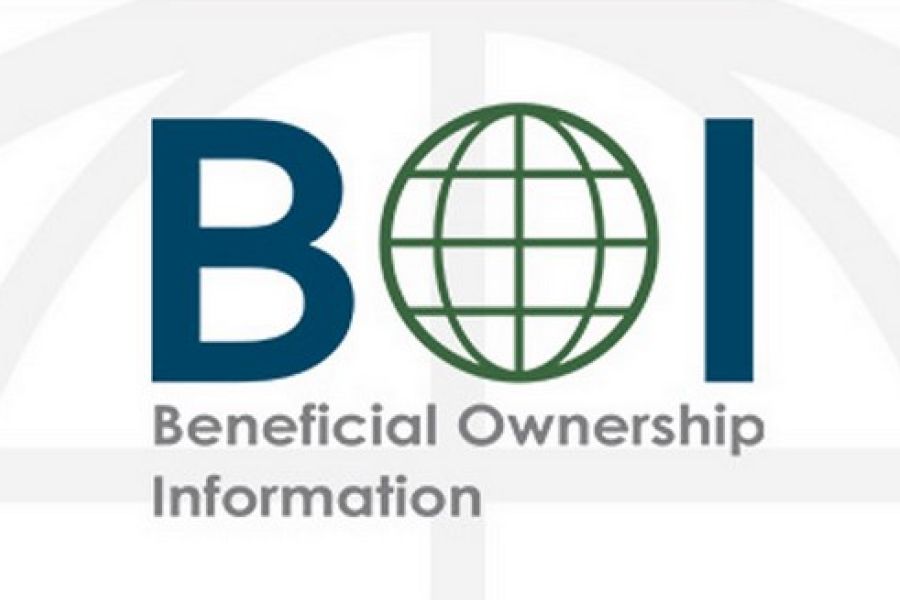Business e-mail compromise (BEC) has emerged as one of the most financially damaging online crimes. According to the FBI’s Internet Crime Complaint Center (IC3), organizations lost nearly $56 billion across approximately 305,000 incidents between October 2013 and December 2023. Increasingly, gift cards are playing a key role in BEC scams. Understanding how these schemes work can help prevent them from harming your business. Role of gift cards To steal from companies, BEC perpetrators use social engineering and computer intrusion techniques. Their goal is to trick email users into transferring funds to them. Although several BEC variations are active, cybercriminals usually impersonate senior executives and target lower-level employees by asking workers to fulfill what might seem like routine requests. These include sending money via wire or writing a check. In...

Intangible assets, such as patents, trademarks, copyrights and goodwill, play a crucial role in today’s businesses. The tax treatment of these assets can be complex, but businesses need to understand the issues involved. Here are some answers to frequently asked questions. What are intangible assets? The term “intangibles” covers many items. Determining whether an acquired or created asset or benefit is intangible isn’t always easy. Intangibles include debt instruments, prepaid expenses, non-functional currencies, financial derivatives (including, but not limited to, options, forward or futures contracts, and foreign currency contracts), leases, licenses, memberships, patents, copyrights, franchises, trademarks, trade names, goodwill, annuity contracts, insurance contracts, endowment contracts, customer lists, ownership interests in any business entities (for example, corporations, partnerships, LLCs, trusts and estates) and other rights, assets, instruments and...
In a significant development for businesses across the United States, the legal landscape surrounding the Corporate Transparency Act (CTA) has taken a pivotal turn with the case of Smith et al. v. U.S. Department of the Treasury. Here’s what you need to know about the current state of affairs and what might lie ahead: The Legal Background On January 7, 2025, the U.S. District Court for the Eastern District of Texas issued a preliminary injunction in the case Smith v. U.S. Department of the Treasury, halting the enforcement of the CTA's beneficial ownership information (BOI) reporting requirements. This decision was a direct response to concerns raised by the plaintiffs, Samantha Smith and Robert Means, regarding the applicability and implications of these regulations on their businesses. Recent Developments The Department...
Medicare health insurance premiums can add up to big bucks — especially if you’re upper-income, married, and you and your spouse both pay premiums. Read on to understand how taxes fit in. Premiums for Part B coverage Medicare Part B coverage is commonly called Medicare medical insurance. Part B mainly covers doctors’ visits and outpatient services. Eligible individuals must pay monthly premiums for this benefit. Medicare is generally for people 65 or older. It’s also available earlier to some people with disabilities, and those with end-stage renal disease and ALS. The monthly premium for the current year depends on your modified adjusted gross income (MAGI), as reported on your Form 1040 for two years earlier. MAGI is the adjusted gross income (AGI) number on your Form 1040 plus...
Business valuation experts often rely on prospective financial statements when applying the discounted cash flow (DCF) method to value a private business interest. However, when management prepares financial projections for another purpose — such as a loan application — repurposing them to estimate fair market value for litigation purposes may raise a red flag. A recent New York statutory appraisal case provides a cautionary tale worth considering. Unrealistic projections sink expert’s analysis In Magarik v. Kraus USA, Inc., both parties in a buyout dispute hired business valuation professionals to estimate the fair value of the petitioning shareholder’s 24% interest in an S corporation that sold upscale plumbing fixtures. Although both experts applied the income and market approaches, their value conclusions were widely disparate. The shareholder’s expert estimated the value...
Understanding how to deduct transportation costs could significantly reduce the tax burden on your small business. You and your employees likely incur various local transportation expenses each year, and they have tax implications. Let’s start by defining “local transportation.” It refers to travel when you aren’t away from your tax home long enough to require sleep or rest. Your tax home is the city or general area in which your main place of business is located. Different rules apply if you’re away from your tax home for significantly more than an ordinary workday and you need sleep or rest to do your work. Your work location The most important feature of the local transportation rules is that your commuting costs aren’t deductible. In other words, the fare you...
If you’ve reached age 70½, you can make cash donations directly from your IRA to IRS-approved charities. These qualified charitable distributions (QCDs) may help you gain tax advantages. QCD basics QCDs can be made from your traditional IRA(s) free of federal income tax. In contrast, other traditional IRA distributions are wholly or partially taxable, depending on whether you’ve made nondeductible contributions over the years. Unlike regular charitable donations, you can’t claim itemized deductions for QCDs. That’s OK because the tax-free treatment of QCDs equates to a 100% deduction. To be a QCD, an IRA distribution must meet the following requirements: It can’t occur before you’re age 70½. It must meet the normal tax-law requirements for a 100% deductible charitable donation. It must be a distribution that would otherwise be...
As a small business owner, managing health care costs for yourself and your employees can be challenging. One effective tool to consider adding is a Health Savings Account (HSA). HSAs offer a range of benefits that can help you save on health care expenses while providing valuable tax advantages. You may already have an HSA. It’s a good time to review how these accounts work because the IRS has announced the relevant inflation-adjusted amounts for 2025. HSA basics For eligible individuals, HSAs offer a tax-advantaged way to set aside funds (or have their employers do so) to meet future medical needs. Employees can’t be enrolled in Medicare or claimed on someone else’s tax return. Here are the key tax benefits: Contributions that participants make to an HSA are...
If your business is particularly busy, you may temporarily outsource some of its work to third-party contractors. Hiring contractors can be a cost-effective way to manage seasonal — or even ordinary — customer demands without hiring new employees or making other long-term investments. However, third parties can introduce some financial, legal and reputational risks. So it’s important to recognize potential threats and take steps to head them off before engaging contractors. 2 scenarios Consider the following example: A company employs an overseas trucking company to transport goods from a port to a customer’s warehouse. The driver, unfortunately, isn’t very honest and he pays a kickback to customs personnel to release the shipments quickly. This action subjects the company that hired the contractor to bribery and corruption charges...
You’re not alone if you’re confused about the federal tax treatment of business-related meal and entertainment expenses. The rules have changed in recent years. Let’s take a look at what you can deduct in 2024. Current law The Tax Cuts and Jobs Act eliminated deductions for most business-related entertainment expenses. That means, for example, that you can’t deduct any part of the cost of taking clients out for a round of golf or to a football game. You can still generally deduct 50% of the cost of food and beverages when they’re business-related or consumed during business-related entertainment. Allowable food and beverage costs IRS regulations clarify that food and beverages are all related items whether they’re characterized as meals, snacks, etc. Food and beverage costs include sales tax, delivery fees...
- 1
- 2
- 3
- 4
- 5
- 6
- 7
- 8
- 9
- 10
- 11
- 12
- 13
- 14
- 15
- 16
- 17
- 18
- 19
- 20
- 21
- 22
- 23
- 24
- 25
- 26
- 27
- 28
- 29
- 30
- 31
- 32
- 33
- 34
- 35
- 36
- 37
- 38
- 39
- 40
- 41
- 42
- 43
- 44
- 45
- 46
- 47
- 48
- 49
- 50
- 51
- 52
- 53
- 54
- 55
- 56
- 57
- 58
- 59
- 60
- 61
- 62
- 63
- 64
- 65
- 66
- 67
- 68
- 69
- 70
- 71
- 72
- 73
- 74
- 75
- 76
- 77
- 78
- 79
- 80
- 81
- 82
- 83
- 84
- 85
- 86
- 87
- 88
- 89
- 90
- 91
- 92
- 93
- 94
- 95
- 96
- 97
- 98
- 99
- 100
- 101
- 102
- 103
- 104
- 105
- 106
- 107
- 108
- 109
- 110
- 111
- 112
- 113
- 114
- 115
- 116
- 117
- 118
- 119
- 120
- 121
- 122
- 123
- 124
- 125
- 126
- 127
- 128
- 129
- 130
- 131
- 132
- 133
- 134
- 135
- 136
- 137
- 138
- 139
- 140
- 141
- 142
- 143
- 144
- 145
- 146
- 147
- 148
- 149
- 150











